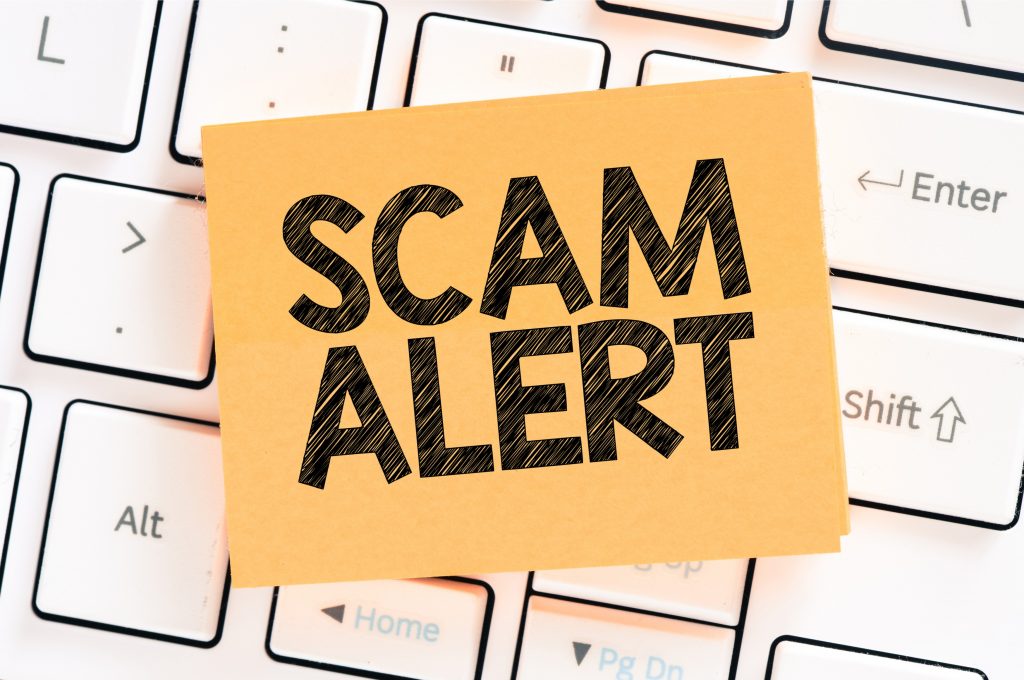The group of cons known as Nigerian Scams is one of the most prevalent forms of fraud online; although they are thought to have originated in Nigeria, similar forms have sprung up, over the years, in a multitude of other countries.
While the exact details of the scam can change, the con essentially involves the fraudster sending an email to a mark in which the writer claims to be related to a rich Nigerian politician or political activist who is imprisoned, exiled, or deceased. The details can change, but the gist remains the same. The email will then usually go on to claim that the wealthy relative’s bank account is frozen and cannot be accessed, but the money held in it – totaling millions of dollars – can be deposited into foreign bank accounts.
The writer will then say that he/she is looking for trustworthy foreigners who can be the custodian of these funds, which will be deposited into their bank account if they agree for a temporary period of time. If the recipient is happy with the arrangement, they will be rewarded with a sum typically in the region of 40% of the total deposit – which equals a temptingly significant amount of cash.
How Marks’ Funds Are Scammed
Following this email message, there are two main ways that the recipient can get roped into the scam. Firstly, the bank and personal details they provide to the writer of the email can be used to access their account and empty it of funds and/or to commit identity fraud.
The scam can also work by the perpetrator stating, once the mark has agreed to allow the money to be deposited into their account, that they will require a payment to cover the transfer of funds fee, taxes, or other charges. If this is given, then the scammers will either simply take the money and disappear or will attempt to persuade the mark to part with more money than they claim is needed for additional transfer fees – requests will continue to be made, with greater and greater urgency, until the scammers either get what they want or their victim realizes what is happening and refuses to part with any more cash.
History of the Con
Although the modern version of this scam is believed to have originated in Nigeria in the 1990s, it is thought to date back possibly hundreds of years – during which period, it would, of course, have been in the form of a letter: it was known then as the Spanish Prisoner Scam, and used a similar story of woe to persuade the recipient to part with their money.
The modern con known as the Nigerian Scam is also referred to as the 419 scam; this is because it is section 419 of the Nigerian Criminal Code that makes this kind of fraud illegal.
What About the Nigerian Romance Scam?
Unfortunately, scammers also prey on unsuspecting marks using what’s known as the Nigerian Romance Scam. This is a particularly cruel con involving the scammers adopting a seemingly legitimate and credible online personality to gain the trust of a person they have identified as potentially susceptible.
The scammer may go to great lengths to create a believable alter-ego, using attractive photos stolen from elsewhere on the internet and even possibly researching the mark so that they can claim to be from the same area, have the same interests, or have previously worked for the same large company, for example.
The fraudster will engage, virtually, with the mark, in what seems to be a blossoming romantic relationship. It’s not unusual, within a very short timeframe, for marriage to be proposed or plans made to meet up. Inevitably, the scammer will find a precept to request money from their victim. Typically, these requests will continue to be made with ever-growing frequency and for larger and larger sums until their mark either runs out of money or becomes suspicious.
Nigeria is the country with the second-highest prevalence of Romance Scams in the world, just behind the Philippines.
What Are Advance Fee Scams?
Another form of the Nigerian Scam is the Advance Fee Scam. The essence of this con is that the scammer convinces the victim to pay some money up front for something they have promised to provide of greater value – this could typically be a gift, loan, investment, or contract. If the mark is persuaded to make the payment, the scammer disappears with their cash.
An Advance Fee Scam, therefore, could take the form of a potential victim being contacted regarding a seemingly lucrative and legitimate investment opportunity, with the fraudsters posing as lawyers or professional investors offering a tempting proposal.
Marks could also be contacted with the news that they have won a large sum of money in a raffle, lottery, or online competition; in these cases, scammers will often use official logos, etc., from legitimate lottery organizations, and the emails sent can be extremely convincing. The recipient is then asked for personal information to verify their identity in order for the funds they’ve won to be released to them. This information could be their name, date of birth, and driver’s license details – which the perpetrators then use to commit identity fraud. Sometimes, too, the scammers will ask for a small sum of money to be paid to them upon receipt of which the allegedly won funds will be sent.
What are Charity Scams?
This is one of the newer versions of the Nigerian Scam that has been circulating for the last few years. With this fraud, the scammer will identify potential victims often via specific church or religious group’s online forums or communities and pose as, for example, a reverend or pastor asking the intended victim to make a regular charitable donation to their cause.
Although these communications, and the stories that the scammers relate to, may seem very credible, closer investigation will reveal that, where they even mention an organization by name at all, it doesn’t exist or is of a dubious nature.
How Did the Scammers Get My Details?
If you’ve had one of these unsolicited emails pop up in your inbox, you may have wondered uneasily how the scammers got hold of your details in the first place that allowed them to make contact.
Unnecessarily sharing your website address or adding your details to a site that subsequently suffered a security breach are the most common ways for your information to end up on one of these databases and in the hands of the scammers. Being vigilant about giving out your information – and only doing so when absolutely necessary – can help to prevent this.
How to Stay Safe from Nigerian Scams
It’s important to know how to protect yourself from these types of scams – they can be very sophisticated, and the con artists may appear very convincing, and this kind of fraud, as a result, catches out many people.
Should you receive a communication from someone unknown to you, whether in Nigeria or any other country, asking for your personal and/or banking details, then don’t respond to it in any manner; instead, contact the relevant authorities immediately to alert them to what has happened.
Always guard your personal and banking information carefully, and never believe promises of large sums of money from unknown people sending you a communication from out of the blue.
Regarding Romance Scams – there are some steps you can take to protect yourself when on dating sites to avoid becoming a victim of this type of fraud. Firstly, be wary of those you connect with who, very quickly, are proclaiming strong emotions and, after only an initial message or two, are pushing strongly to meet up. Also, think very carefully about anyone you meet on a dating site which, again, very early on, is pushing to communicate off-site, maybe via text or email – this can be due to a reluctance to have the dating site be able to monitor their messages.
If there is any hint of asking for money, gifts, etc., even subtly, then this is a major red flag, and you should back away and, if appropriate, report the person to the dating site administrators. Trust your gut, too: if you have an instinct that something is ‘off,’ then terminate the connection and walk away from the match, even if this is difficult to do.
What To Do If You’ve Been Scammed
If you have been the victim of a Nigerian Scam, then you are likely to be feeling distressed, angry, vulnerable, and as if there is little chance of ever seeing the money you lost again. However, for a good chance of recovering your funds, your best course of action is to get in contact with a reputable company like Worldwide Recovery, who are specialists in recovering money for their clients who have fallen foul of financial fraud, such as a Nigerian scam.
Contact the team at your earliest convenience – this not only relieves you of the stress of trying to track down your scammed funds yourself but also gives you the best chance of success in getting the money back.



